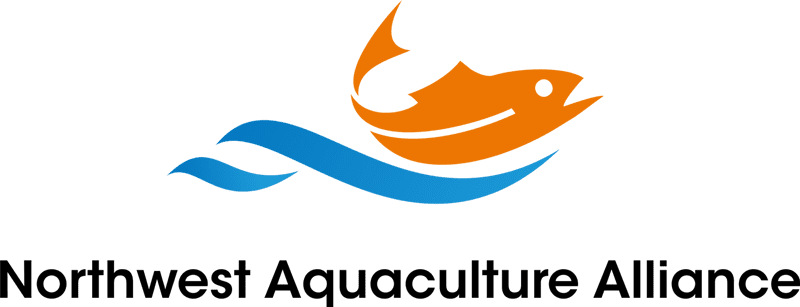Northwest Aquaculture Alliance (NWAA) sent an invitation and a challenge to the billion-dollar outdoor gear and clothing manufacturer “to engage with our organization and our scientists to learn the real story of aquaculture—land-based, freshwater, and marine.”
Patagonia Provisions, a subsidiary company of Patagonia, sells high-end camping provisions, including food sourced from producers who meet standards of sustainability set by the company. A variety of wild fish products are offered on their website.
Now the company has partnered with the Wild Fish Conservancy (WFC), to prohibit all net pens in Puget Sound, and instead, lease the area in a trust-like contract, to help restore wild salmon runs and the marine habitat.
Washington state already outlaws net pen farming of Atlantic salmon in a phased out process that will be completed in 2022. That 2018 law also prohibits Northwest commercial aquaculture operations from raising non-native finish in state waters.
In April 2019, Patagonia released a documentary called “Artifishal” that pointed to net pens and hatcheries as a threat to wild Pacific salmon. In the film, Cooke Aquaculture, owner of a net pen that collapsed in 2017 with a large release of Atlantic salmon into the Sound, was identified as an example of aquaculture gone wrong.
NWAA said the video, which featured WFC’s founder Kurt Beardslee as “one of the most scientifically unfounded and defamatory attacks on aquaculture by a competitor in the wild fish sector … disparaging the family-owned and operated company, Cooke—which was recently named by the respected trade group, SeafoodSource, as one of the Top 25 Seafood Suppliers in North America for Sustainability & Conservation.”
Citing Patagonia’s “microplastics problem, caused by the shedding of microplastics when the synthetic clothing goes through the wash cycle,” and their “fair labor issue” related to “supply chains [which] include manufacture in third-world countries” NWAA acknowledges that “all forms of food production, including aquaculture, affect the environment.”
“We who grow food (in the sea and on land) have that in common with Patagonia, which by the company’s own admission, manufactures synthetic clothing, which ‘comes at a cost to the environment’,” the group’s news release noted.
“So why the self-righteous indignation over aquaculture—marine aquaculture in particular?” NWAA asked.
“We suggest that Patagonia is being used as a pawn by its WFC ‘partner’ as it attempts to disparage our industry and our NWAA members, making claims that are completely without merit. While such hyperbolic statements as we hear on the video may make great fundraising fodder, they do little to foster a broader understanding of the great strides aquaculture has made in the past decade to become a more sustainable, environmentally responsible, industry,” the release stated.
The Alliance accuses the WFC of making “defamatory statements about aquaculture [that] have little or no scientific merit and whose supposed ‘advocacy’ on behalf of wild salmon has produced few tangible results while generating millions of dollars for the NGO through numerous frivolous legal actions.”
As an example, NWAA recalled a suit WFC filed last year. “In 2019, when the WFC challenged Cooke Aquaculture Pacific under the Clean Water Act, its executive director, Kurt Beardslee, repeatedly hammered away about the “impacts” of escapes after the Cypress Island net pen collapse. Yet WFC’s own expert witness, Dr. John Volpe, could not, under oath, produce any evidence to support Beardslee’s claims, admitting, in fact, that he had no evidence and no opinion about impacts from the Cypress Island escape. He makes the same conclusions about the supposed “chronic” escape of fish, testifying under oath that he had no opinion and no evidence of these supposed ‘impacts,’” the release said.
“We encourage Patagonia to re-evaluate its affiliation with WFC and learn more about sustainable aquaculture happening right here, right now, and around the world. Our message to Patagonia: We can help. We’ll be waiting for your call.”
Northwest Aquaculture Alliance, a coalition of leaders in aquaculture production, feed, and support industries in Washington, Oregon, Idaho, Montana, and British Columbia, is led by President Jim Parsons, General Manager of Cooke Aquaculture Pacific, and Vice President Kurt Grinnell, CEO of Jamestown Seafood and Aquaculture Policy Manager for the Jamestown S’Klallam Tribe in Washington.
Peggy Parker
SeafoodNews.com
1-781-861-1441
peggyparker@urnerbarry.com
